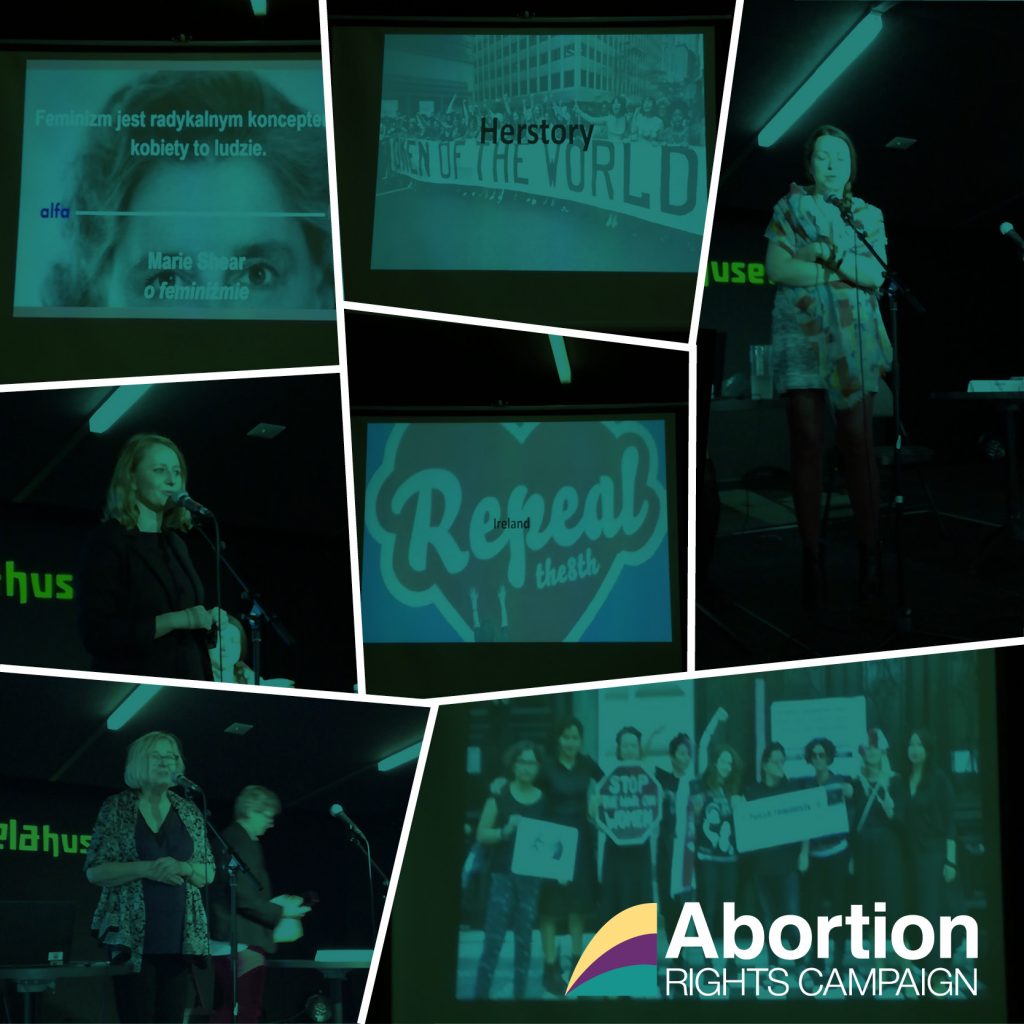
On the 13th of October we were invited to speak about the campaign to repeal the 8th amendment in Oslo. We were joined by Polish activists Krystyna Kacpura, Executive Director of the Federation for Women and Family Planning, and two London-based Polish activists Aga Hall and Magda Oldziejewska, from FARSA: Feminist ARtivists Society in Action. Together, we were invited to a small gathering of feminists to talk about the European struggle for abortion access.
One of the most interesting things about being brought together for this meeting was that it represented a snapshot of activists at various stages in the fight for free, safe, legal and local access. Since 1978, abortion has been legal on demand in Norway up to 12 weeks, and under certain circumstances thereafter, until viability. Abortion is only allowed in Poland in the cases of rape, when a woman’s life or health is in danger, and where there is a diagnosis of foetal impairment, though in reality these limited grounds for access operate as a near-total ban on abortion.
We were there to speak about the success of the Together for Yes campaign and the years of campaigning that preceded it, exploring what worked to change people’s minds, the history of the Abortion Rights Campaign and our place in the repeal campaign. We spoke about the work we had put into upskilling our volunteers, into high-level advocacy in the UN, as well as grassroots organising of the March for Choice every year. We talked about the work we had done in helping to establish groups in every county, as well as using the tools we had learnt to change the conversation around abortion. We encouraged people to talk to their TDs via our Civic Engagement training, which was successful in making abortion an election issue, and we centred the voices of those who could get pregnant in the discourse around abortion.
As always, it was fascinating and inspiring to come together with feminists and pro-choice activists from different movements. While each country and population is different, with a unique history, there are particular points in which we found commonality: stigma and silence, the role of the church hierarchy, lack of comprehensive sex education, how income inequality creates a two-tier system separating those who can afford to travel from those who cannot, the specific ways that the laws disproportionately affect migrants and other marginalised groups. These shared themes demonstrate the systematic nature of how sexual and reproductive rights are denied across the globe.
The Norwegian activists advised us that following our historic referendum victory, the battle may be over but the war has only just begun. Anti-choice organising will not rest. Even as recently as this week, Norwegian activists have had to take to the street once again to protest the suggestion that abortion laws could be tightened in Norway. Norwegian feminists emphasised the importance of vigilance from the pro-choice community. They stressed the absolute necessity that organisations and activists such as ourselves do not take a step back and to ensure that the legislation we have fought hard for is not weakened before it is enacted, or chipped away post-enactment. The evidence and advice from activists internationally returned to this key theme: the importance of staying involved, remaining vigilant, and continuing to organise.
That being said, the meeting was another reminder of the strength May’s referendum result gave to activists internationally, but particularly within the European region. Until you speak to someone outside of Ireland it is hard to get a sense of how much the success of the repeal campaign means to activists fighting to advance abortion access, or simply holding the line in their country. The activists we encountered were hungry for our lessons learned. We could commiserate with the glacially slow pace of change in some of their countries.
Our own victory has given strength to reproductive rights activists across the globe. However, we know our fight is far from over. We have already seen the anti-choice side rally to keep stigmatising abortion access. In order to ensure that our rights are advanced rather than lost, we must continue to fight. And we must continue to support those jurisdictions where rights are still to be won.
“I remember what it was like to sit alone and feel helpless, feel like that change would never come, crying on my own in front of a computer when stories would break about the damage that the 8th Amendment did. Repeal seemed a long way off, but we had urgency. Change came “slowly, and then all at once.”

